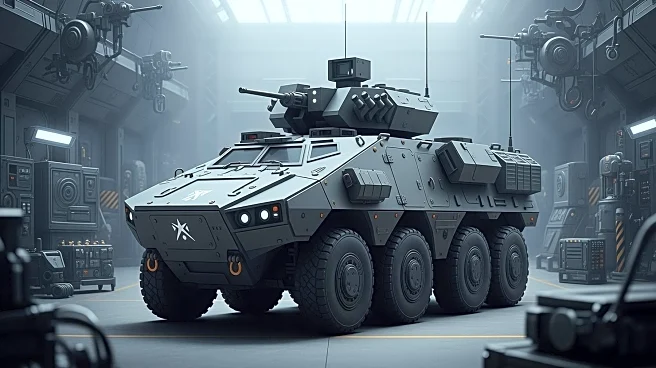What's Happening?
GM Defense has announced plans to deliver more than 1,200 Infantry Squad Vehicles (ISV) to the US Army by the end of 2026. Major General Pete Johnson (retd), vice-president of business development for
integrated vehicles at GM Defense, revealed that the army began fielding nine-passenger ISV configurations in 2024 as part of the Transforming in Contact units, which are transitioning Infantry Brigade Combat Teams to Mobile Brigade Combat Teams. The ISV Utility, a five-passenger model, is expected to be available to soldiers as early as May 2026. GM Defense is focusing on modularity and integration of electronic warfare systems, such as Palantir's Tactical Intelligence Targeting Access Node, to enhance mission capabilities.
Why It's Important?
The delivery of these vehicles is significant for the US Army's modernization efforts, aiming to enhance mobility and operational capabilities of combat teams. The modular design of the ISV Utility allows for integration of advanced electronic warfare systems, potentially increasing the army's tactical advantage. This development reflects GM Defense's commitment to supporting military operations and could influence future defense contracts and collaborations with industry partners. The initiative may also impact the defense sector by setting new standards for vehicle modularity and integration of technology.
What's Next?
GM Defense is expected to continue collaborating with industry partners to integrate diverse capabilities into the ISV Utility. The army's feedback on the initial fielding of ISVs will likely inform future requirements and decision-making processes. As the delivery date approaches, further announcements regarding additional features or modifications to the vehicles may be anticipated. Stakeholders, including military leaders and defense contractors, will be closely monitoring the progress and outcomes of this initiative.
Beyond the Headlines
The integration of electronic warfare systems into military vehicles highlights the growing importance of technology in defense strategies. This trend may lead to increased investment in research and development of advanced systems, influencing the broader defense industry. Ethical considerations regarding the use of such technologies in warfare could also arise, prompting discussions on regulations and international agreements.









